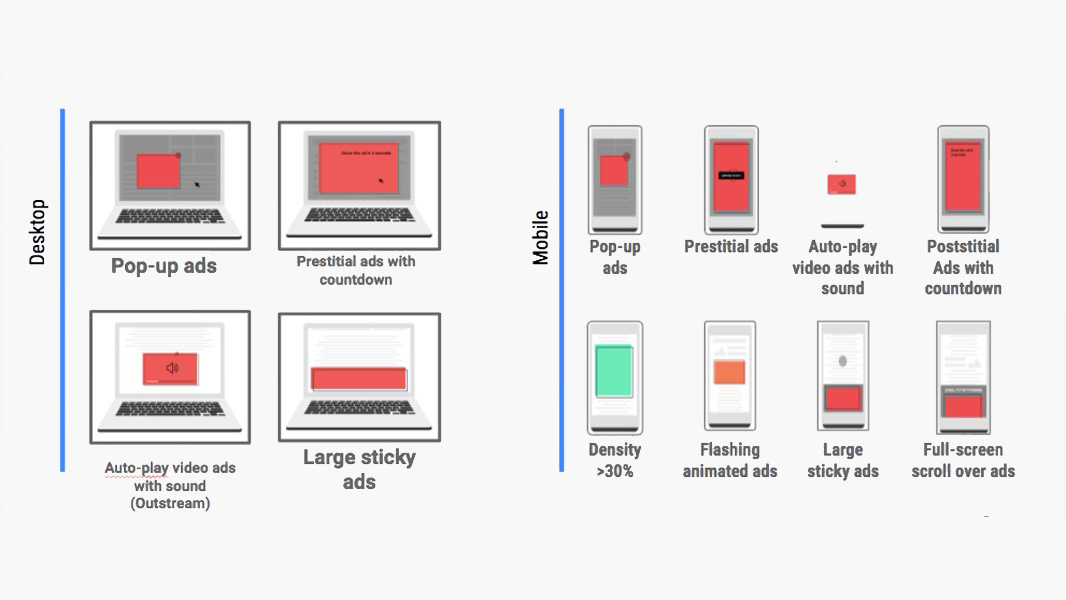Chrome’s Ad Blocker Goes Worldwide in July
- Paul Thurrott
- Jan 10, 2019
-
21

Google announced this week that its ineffective ad blocker for Chrome will be distributed worldwide starting in July.
“We follow the Better Ads Standards when determining which websites to filter ads on in Chrome. These standards were developed by the Coalition for Better Ads, an industry group dedicated to improving the web advertising experience, based on feedback from over 66,000 consumers around the world,” Google senior product director Ben Galbraith explains. “The Standards identify 12 experiences that users find intrusive and that advertisers, publishers, and technology vendors should avoid showing.”
Windows Intelligence In Your Inbox
Sign up for our new free newsletter to get three time-saving tips each Friday — and get free copies of Paul Thurrott's Windows 11 and Windows 10 Field Guides (normally $9.99) as a special welcome gift!
"*" indicates required fields
In other words, Chrome’s ad blocker doesn’t actually block ads, which makes sense when you consider that over 90 percent of Google’s revenues come from ads. Instead, it blocks only those ads that do not conform to the standards developed by a consortium of which it is a part. And as I’ve described in the past, this consortium exists for only one reason: To ensure that ads remain a central part of the web experience. Their strategy is to not support the ad types that most annoy users.
Anyway, Google added this ad blocker to Chrome back in February 2018, though it only supported users in North America and Europe. Starting July 9, it will be rolled out to the rest of the world.
“Our ultimate goal is not to filter ads, but to build a better web for everyone, everywhere,” Google confirms. “Chrome’s enforcement of the Coalition’s standards has inspired many website owners to improve the advertising experience on their sites in a way that benefits users. In the U.S., Canada, and Europe, website owners have successfully been able to make changes to the ads on their sites. As of January 1, 2019, two-thirds of all publishers who were at one time non-compliant to the Better Ads Standards are now in good standing. Further, out of millions of sites we’ve reviewed to date, less than 1% have had their ads filtered.”
Hooray!
Tagged with
Conversation 21 comments
-
dontbe evil
<blockquote><em><a href="#395275">In reply to irfaanwahid:</a></em></blockquote><p>I block them with edge built in setting</p>
-
dontbe evil
<blockquote><em><a href="#396112">In reply to MikeGalos:</a></em></blockquote><p>yup .. can't wait for antitrust … if they're not too focused only on facebook</p>
-
dontbe evil
<p>does it block also google adsense? :D</p>